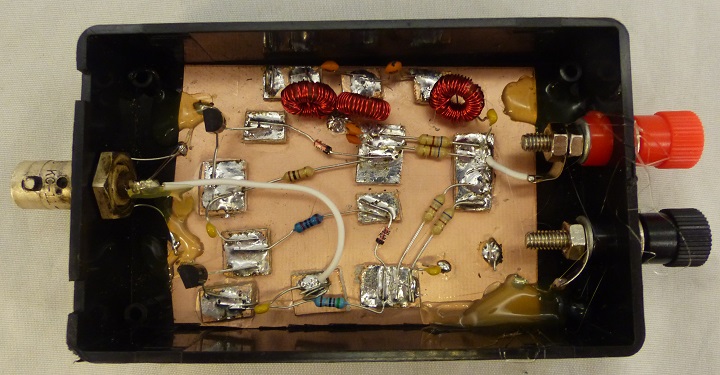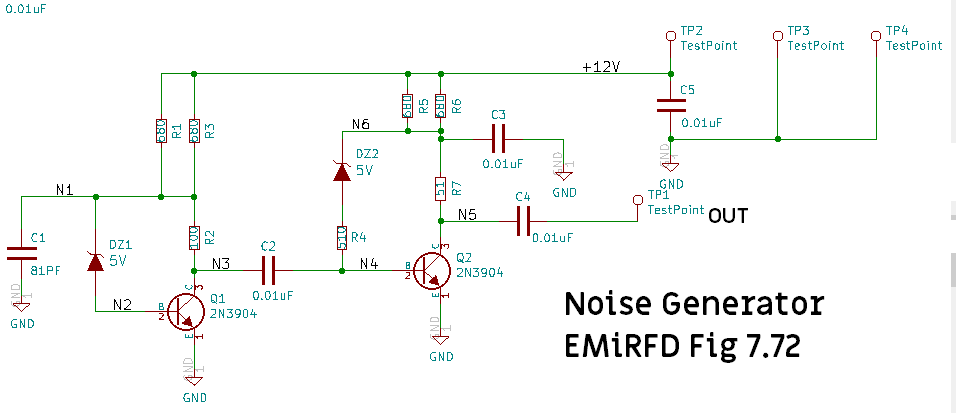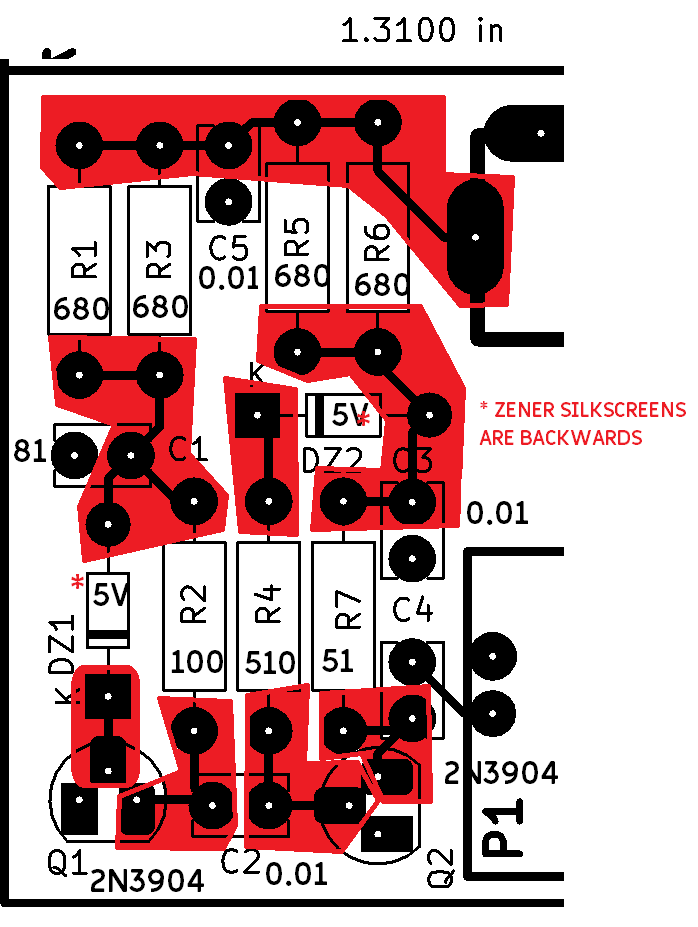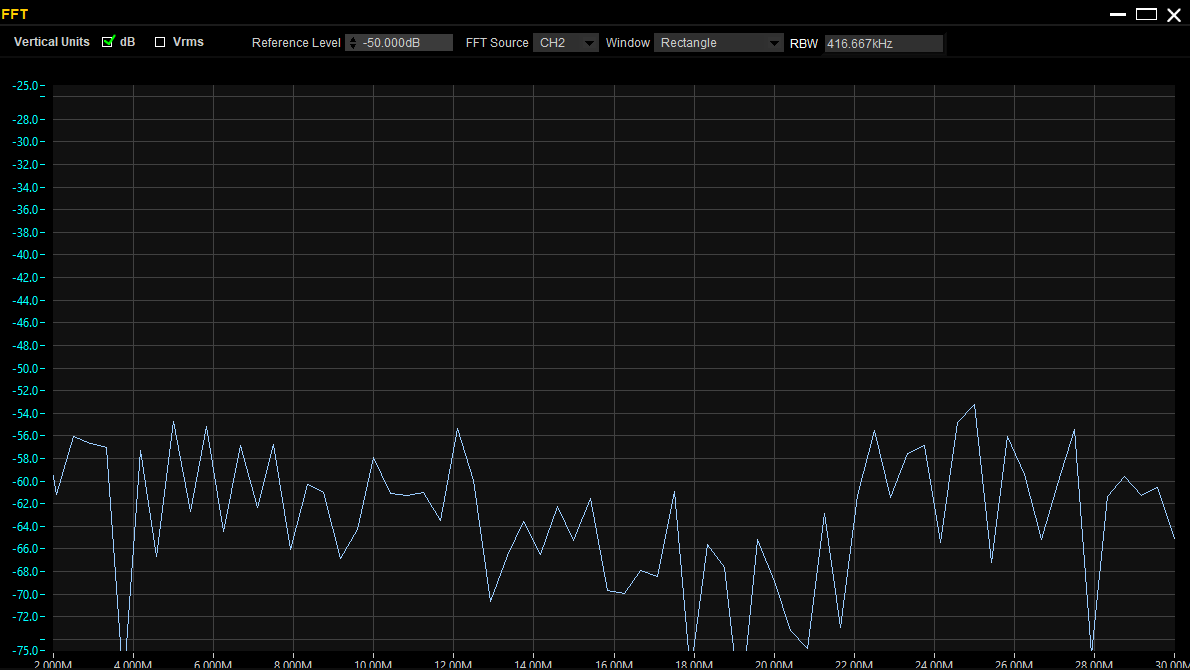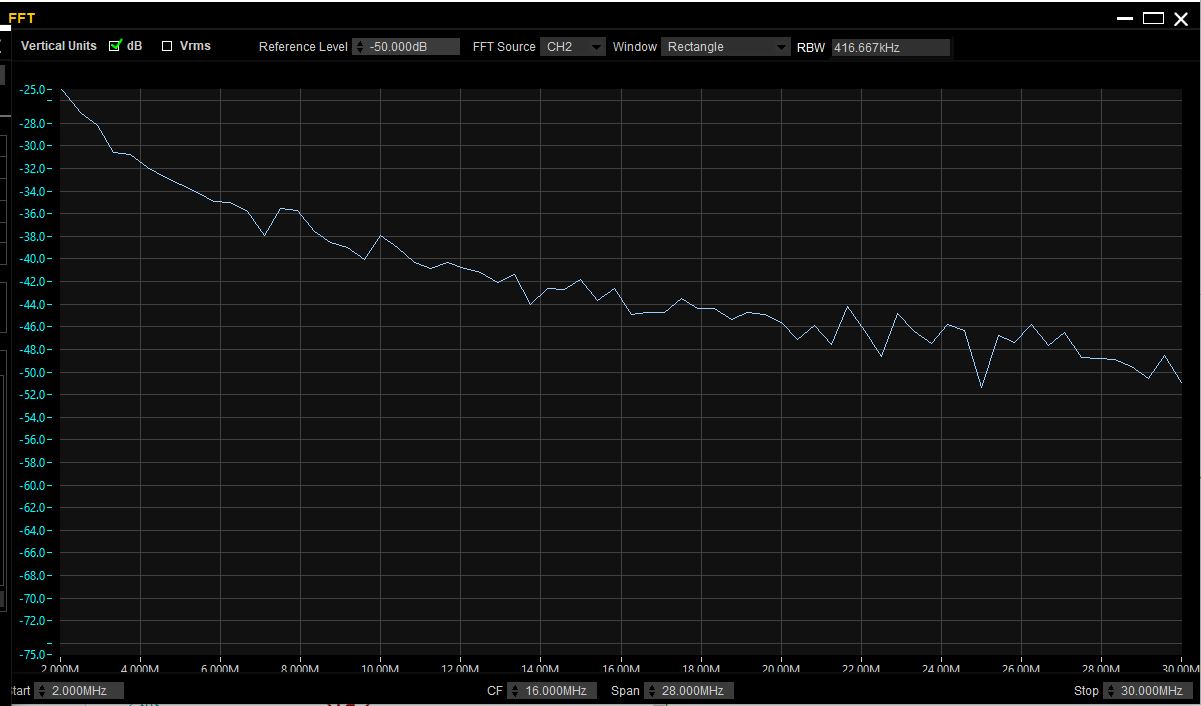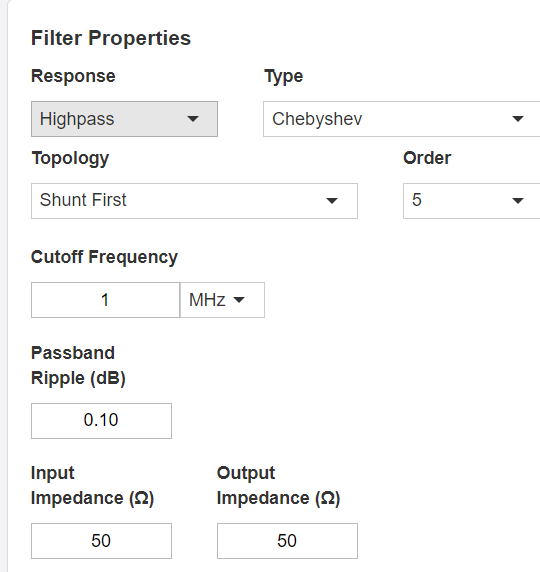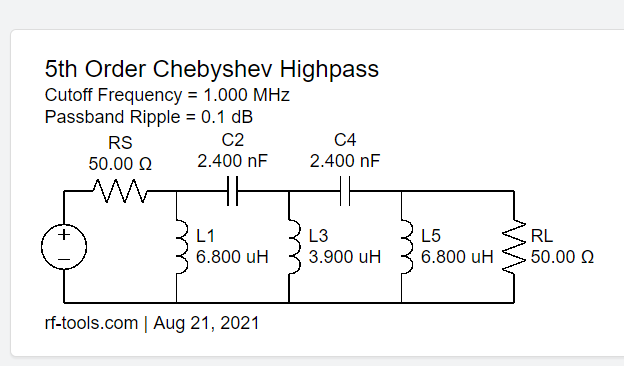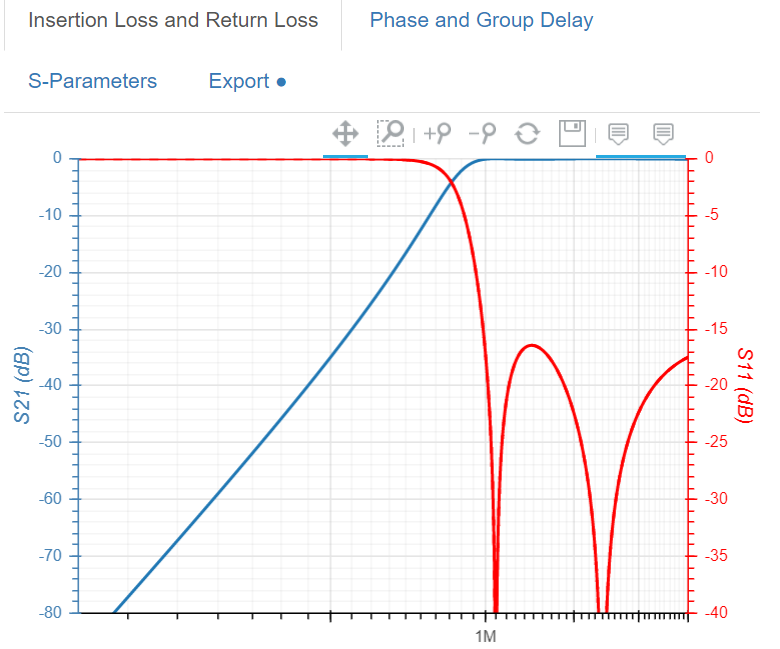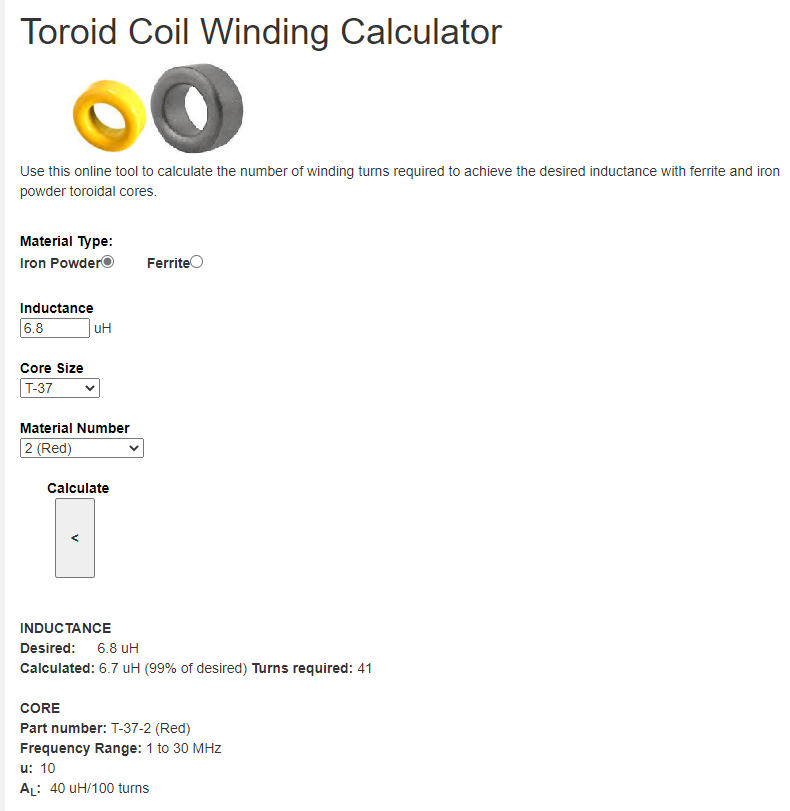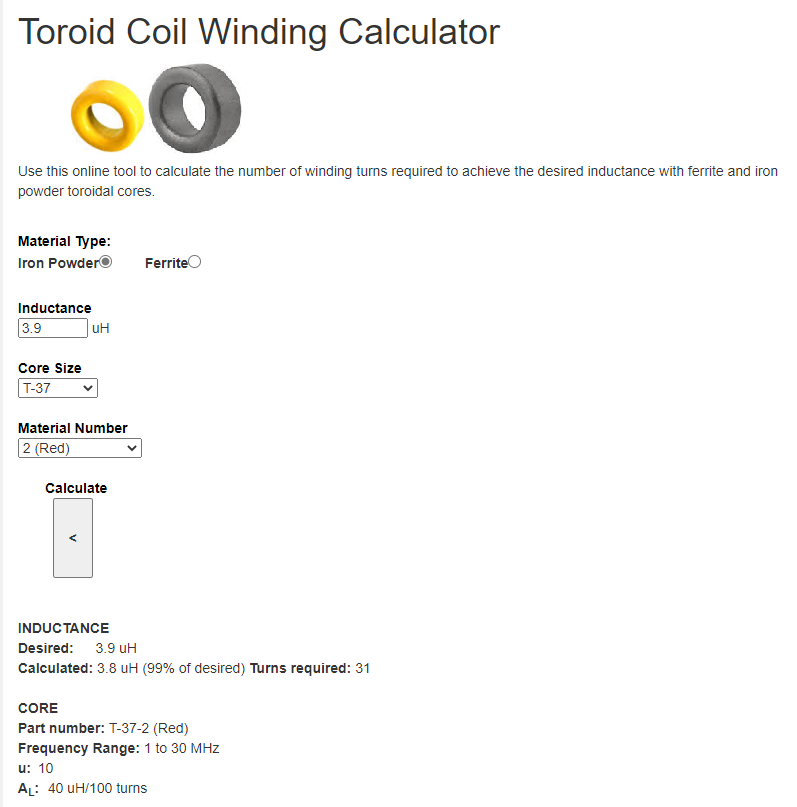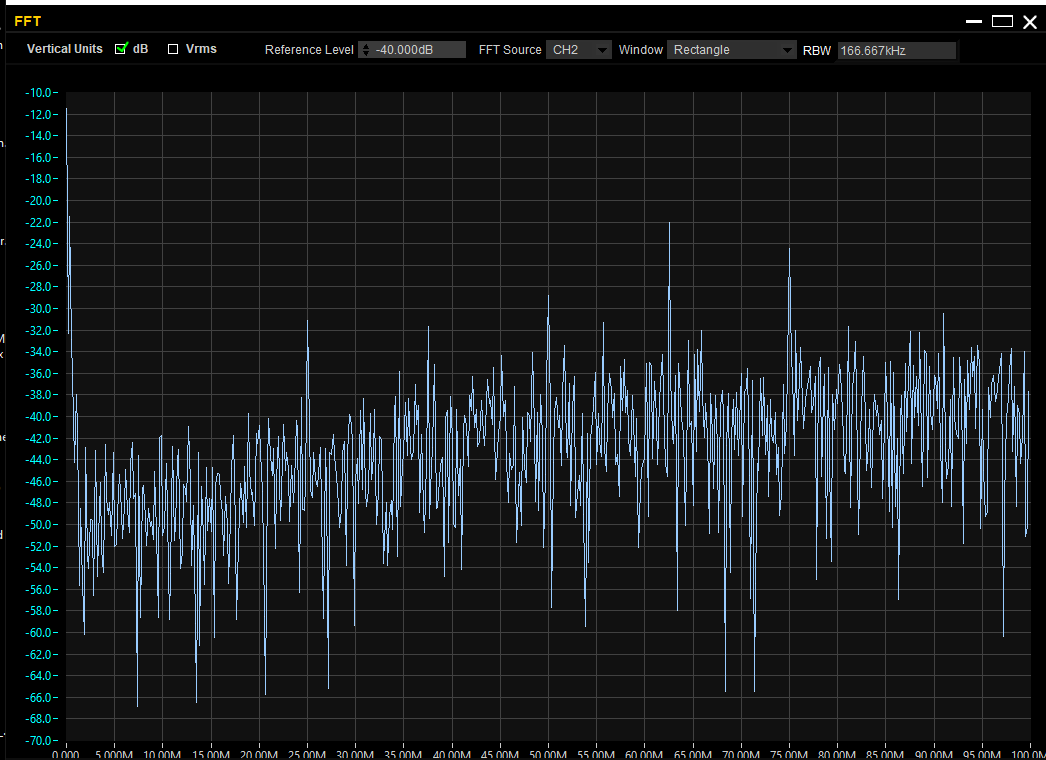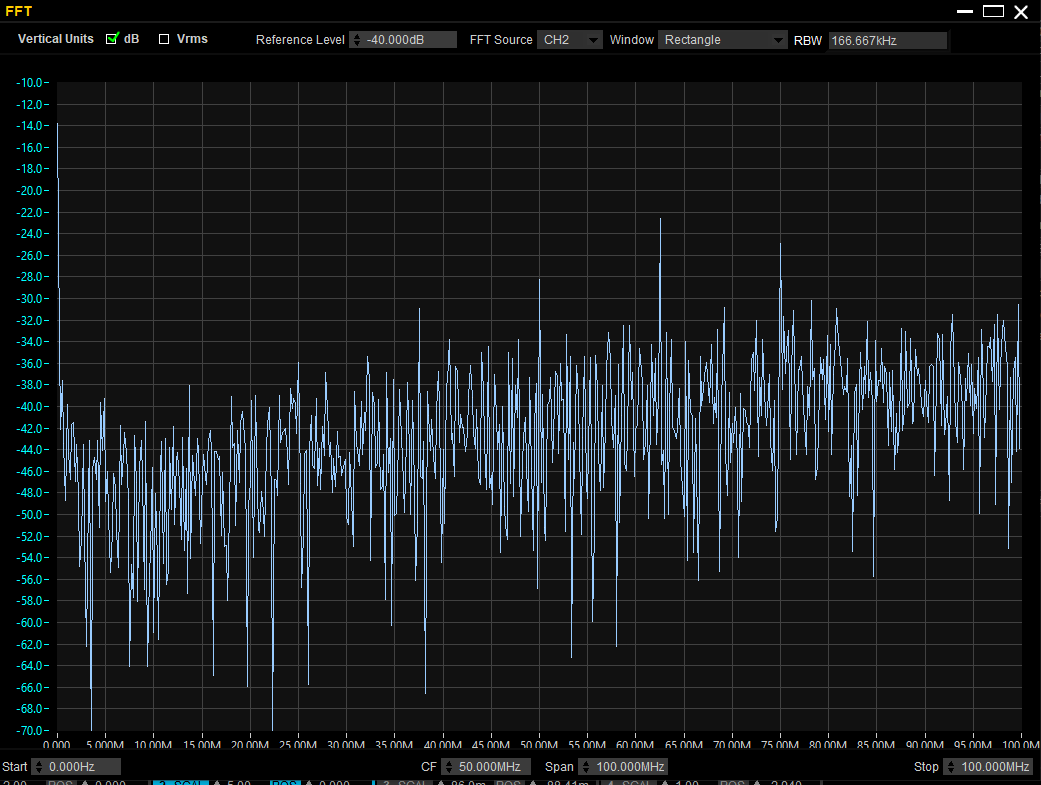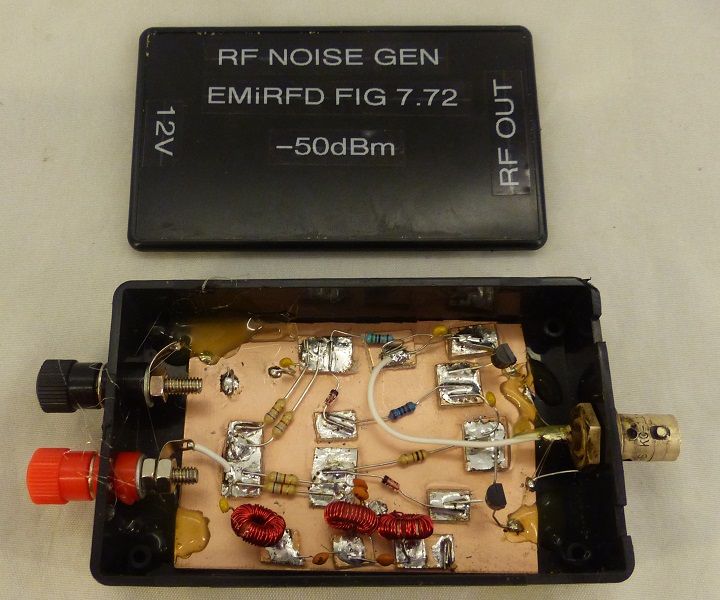Difference between revisions of "RF Noise Generator"
Jump to navigation
Jump to search
Blwikiadmin (talk | contribs) |
Blwikiadmin (talk | contribs) |
||
| Line 92: | Line 92: | ||
== Build / Enclosure == | == Build / Enclosure == | ||
| + | [[file:NoiseGen-P783-720px.jpg]] | ||
| + | [[file:NoiseGen-P790-720px.jpg]] | ||
== Assembly Sheet == | == Assembly Sheet == | ||
[[RF Noise Generator Rev 1]] | [[RF Noise Generator Rev 1]] | ||
Revision as of 16:29, 22 August 2021
Contents
Design
- Useful as a filter test signal source
- Pass filters
- Crystal filters
- From Experimental Methods in RF Design
- Fig 7.72
- Described as "not flat"
- "Junk box" parts
- (2) 2N3904 transistors
- (2) 5V (nominal) zener diodes
- Noise figure -50 dBm @ 10 MHz
Schematic
Prototype
- Unique nodes in red
- Prototype on single sided copper clad PCB
- KiCAD zener packages have backwards silkscreen (will need to fix on OshPark PCBs)
Meaurements
- 12V, 43mA current draw
- Rigol DS1054Z
- 50 MHz scope with mods
- UltraScope settings
- SCAL 1.00 V
- H 200nS
- FFT settings
- CF = 16 MHz
- 2 MHz start, 50 MHz stop
- RBW 416.6 KHz
- Background noise
- Generator off
- Average ~ -64 dB
- Noise Generator On
- Falls off with frequency, but better than -50 dB
- Measured performance per EMiRFD (predicted - 50 dB)
High Pass Filter
- Output series coupling 10 nF cap and 50 Ohm Load resistor make a High Pass Filter at 312 KHz
- No real point in making a better filter, but why not?
Design Inputs
- High Pass filter
- 5th Order Chebyshev filter
- Fc = 1 MHz
- 3 Inductors, 2 Capacitors
- Toroid Coil Winding Calculator
Schematic - 5% Standard parts
Predicted Response
Toroid winding
- T37 cores, approx .5" per turn, plus tails
